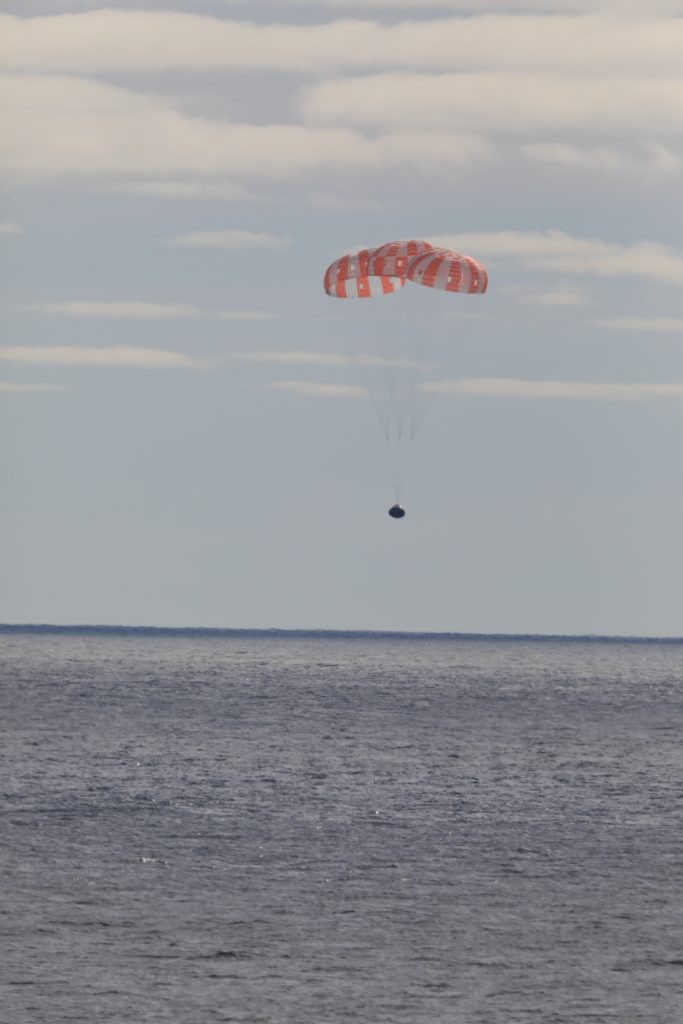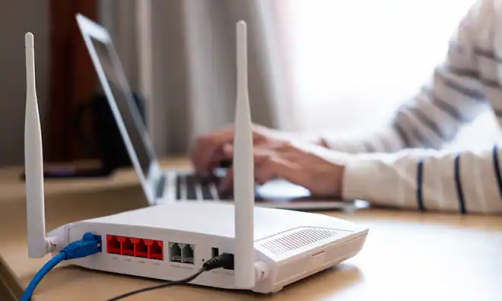NASA's Artemis 1 mission ends with a "splashing" success.
The space agency's Orion spacecraft successfully splashed down off the coast of California in the Pacific Ocean earlier this afternoon after almost a month in space.
With Artemis 1's success, Artemis II, the first crewed Artemis mission that will take astronauts back to the moon's orbit, is sure to come next.

At 12:40 p.m. EST, Dec. 11, 2022, NASA’s Orion spacecraft for the Artemis I mission splashed down in the Pacific Ocean after a 25.5 day mission to the Moon. Orion will be recovered by NASA’s Landing and Recovery team, U.S. Navy and Department of Defense partners aboard the USS Portland ship.
Artemis 1 Orion spacecraft Splashdown Details
NASA mentioned in its blog post that its Orion spacecraft completed a parachute-assisted splashdown in the Pacific Ocean off the coast of California at 12:40 PM EST, ending the historic mission on a good (and high) note.
The spacecraft reached its targetted Distant Retrograde Orbit on Nov. 25 and fired its main engine for almost two minutes on Dec. 1 to set it on course for one last lunar flyby before going home.
It became on course to return to Earth after another engine burn that lasted three and half minutes, enduring temperatures as hot as the surface of the sun (5,000 degrees Fahrenheit) during re-entry on Dec. 11 at 12:20 PM EST. At this time, it was going about 25,000 mph - 32 times faster than the sound of sound.
After the successful splashdown, NASA engineers performed several tests on the spacecraft's Integrated Search and Rescue Satellite Aided Tracking (SARSAT) functionality while it was still in the water. Once done, they powered it down and handed it over to the recovery team consisting of trained NASA and US Navy personnel aboard the USS Portland.
To do so, NASA recovery director Melissa Jones of the Kennedy Space Center led Navy divers and other team members in attaching the winch line cable to pull the Orion spacecraft into the USS Arizona.
Read More: Rackspace Customers Might Experience Phishing Attacks Following Ransomware Incident
They then attached up to four additional tending lines to the crew module's attach points and pulled the spacecraft into a specially designed cradle in USS Arizona's well deck.
Once Orion was above the cradle assembly, technicians drained the well dack and secured the spacecraft on the cradle. The USS Arizona then took Orion to US Naval Base San Diego and returned the spacecraft to NASA's Kennedy Space Center for inspection.
Orion's journey around the moon wasn't without hiccups. According to a Space.com article, the spacecraft's navigating star trackers returned with peculiar readings, which the team traced to "dazzling" by its own thrusters.
Additionally, NASA lost communication with the spacecraft due to a configuration error on NASA's Deep Space Network on its side, preventing communication between the space agency and the spacecraft for 47 minutes.
Despite these setbacks, the Orion spacecraft performed well during its first journey around the moon.
NASA Administrator Bill Nelson told the space agency's spokesperson, Rob Navias, that Orion's splashdown is "historic" as humanity is going back into space (and going to deep space) with a new generation.
What's Next For NASA?
With Artemis I's success, it is natural to think NASA will begin preparations for its next Artemis mission - the first crewed mission in the Artemis program.
However, the space agency needs to make sure the spacecraft didn't have any serious issues during its trip around the moon. NASA will only begin preparations for Artemis 2 should it not find any issues with the spacecraft postflight.
Artemis 2 won't be occurring anytime soon, but isn't that far off, either. The mission is scheduled to launch sometime in 2024. After that, Artemis 3, the mission that will take astronauts back to the moon's surface, is destined to launch in 2025 or 2026.
Related Article: NASA's Orion Capsule is Returning Home














